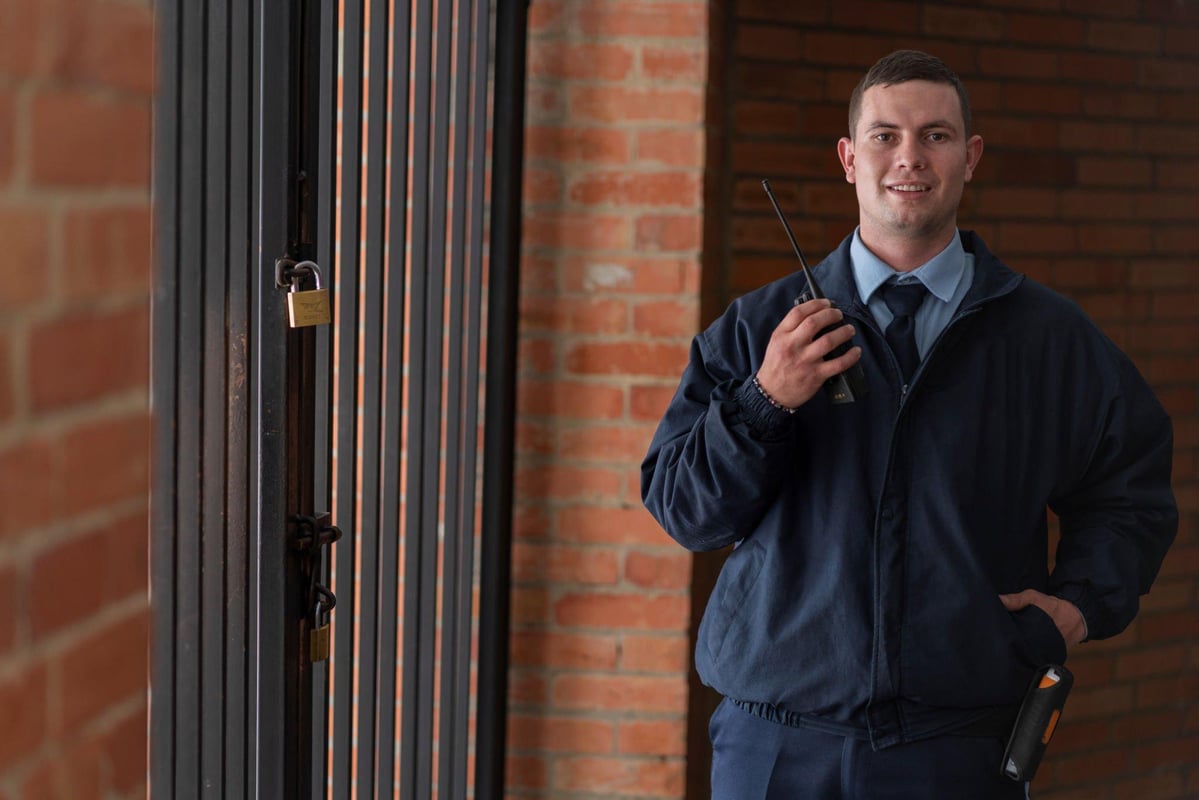
Financial aid (may be available)

Financial aid (may be available)

Financial aid (may be available)

Financial aid (may be available)
$80 total
$24.99 total
$80 total
No cost info

No cost info
No cost info
No cost info
No cost info
$120 total
No cost info
Security is a field of ever-growing importance in our society, and the demand for skilled, trained security guards is on the rise. This blog post aims to provide comprehensive information for those interested in pursuing a career as a security guard in Buffalo, New York. We will cover various aspects, including the role of a security guard, training requirements, what to look for in a class, what to expect from day-to-day classes, and the certification process. We will also explore how to find related jobs and discuss other classes one can take after becoming a security guard.

A security guard is a professional responsible for protecting specific areas, people, or property from various risks such as theft, vandalism, or other illegal activities. They can work in a wide range of environments, including shopping malls, office buildings, concerts, and more. The role of a security guard may involve surveillance, patrolling, and liaising with law enforcement when necessary.
In order to become a security guard, specific training is required. This typically includes:
Security Guard Course: This is the fundamental course for anyone looking to become a security guard. It covers topics like public relations, observation techniques, and legal powers.
First Aid and CPR Training: Security guards often need to be prepared to handle emergency situations. Therefore, training in First Aid and CPR is fundamental.
Fire Safety Course: Security guards should know how to react in case of fire emergencies. This course can provide the necessary knowledge and skills.
When choosing a security guard class, there are certain factors you should consider:
Accreditation: Ensure the class or program is accredited by a recognized body. This ensures that the course meets the necessary educational standards and is recognized by employers.
Comprehensive Curriculum: The course should cover all the essential aspects of security guard training, including law and regulations, report writing, emergency procedures, and more.
Qualified Instructors: Instructors should have significant experience in the field and be able to provide practical insights.
Day-to-day classes for security guard training are typically a mix of theoretical instruction and practical exercises. Students can expect to learn about laws and regulations, communication and public relations, emergency procedures, and more. Practical exercises may include role-playing scenarios, patrol practices, and emergency response drills.
The certification process for security guards typically involves completing the required training course, passing a written exam, and in some cases, a practical assessment. Once you have successfully completed these steps, you will receive a certification that allows you to work as a security guard.
After obtaining your certification, you can start looking for security guard jobs. You can find job postings on various online job sites, company websites, or through staffing agencies. Networking can also be helpful, so consider joining professional organizations or attending industry events.
Once you have become a security guard, you can consider taking additional classes to enhance your skills and broaden your career prospects. Some of these may include:
Conflict Management: This will help you manage disputes effectively and maintain a safe environment.
Advanced First Aid: This can prepare you for more complex emergency situations.
Fire Safety Management: This can improve your ability to prevent and respond to fire emergencies.
Additional courses in fields like law enforcement or criminal justice can also be beneficial, as they can provide a broader understanding of the security field and offer new career opportunities.
After becoming a security guard, there are several career paths you can pursue. With additional training and experience, you can advance to roles such as security supervisor or manager. You could also specialize in a specific area of security, such as corporate security or private investigation.
Besides being a security guard, there are other careers in the security field that you might be interested in. This includes roles like private investigator, loss prevention officer, or even law enforcement officer. You can find more information about these careers on Dreambound.
To stay competitive in the security field, it's important to keep up with the latest trends and developments. This can be done through continuous learning, attending industry events, and being part of professional organizations.
Becoming a security guard can be a rewarding career choice, offering a variety of work environments and opportunities for advancement. The first step towards this career path is finding the right security guard class. Remember to consider factors like accreditation, curriculum, and instructor qualifications when choosing your class. With the right training and dedication, you can enjoy a fruitful career in the security field.
Dreambound simplifies your start in this field with tailored guides for various cities. If life takes you elsewhere or you're thinking about a move, our other guides can help you figure out what to expect.
Thinking about making a big change in your career path? It's important to be well-informed before starting off on your journey. Dreambound has written hundreds of in-depth guides to help. Explore some of these resources below.
Dreambound's platform allows prospective students to find the right educational program for them through searching, filtering, and connecting with our extensive selection of career & technical education partners.
Dreambound has over 70 programs across healthcare, technology, business, and industrial trades. This includes programs such as Medical Billing, Cybersecurity, and welding.
Some of our schools offer financial aid for those who qualify. Many others offer payment plans, where you can pay the cost of class over time.
Yes, Dreambound offers many online programs. On Dreambound's search, you can filter by online, in-person, and hybrid (part online, part in-person).
Dreambound is completely free for you to use! We are supported by schools and organizations who pay to advertise on our website, so we can offer all of our career resources for free.